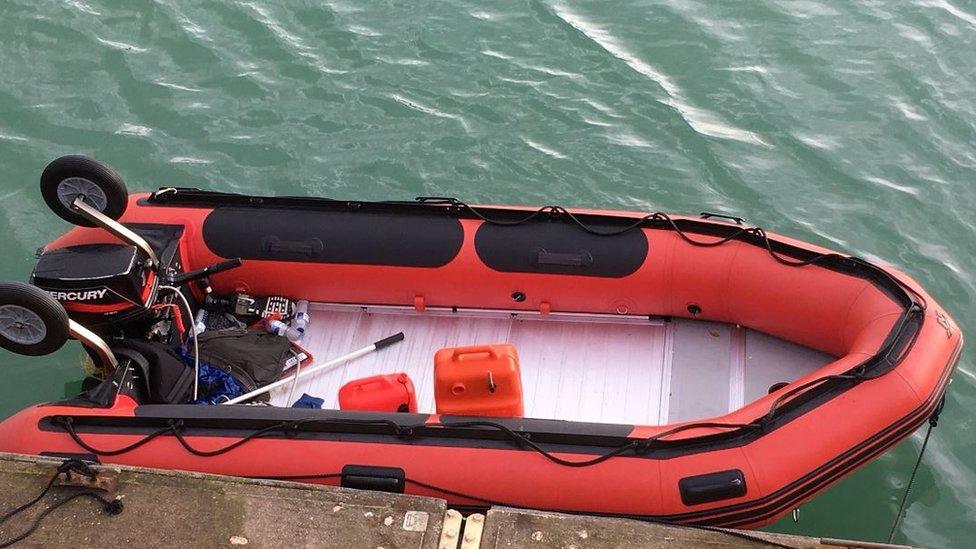Channel migrants: Migrant crossing figure reaches new high
- Published
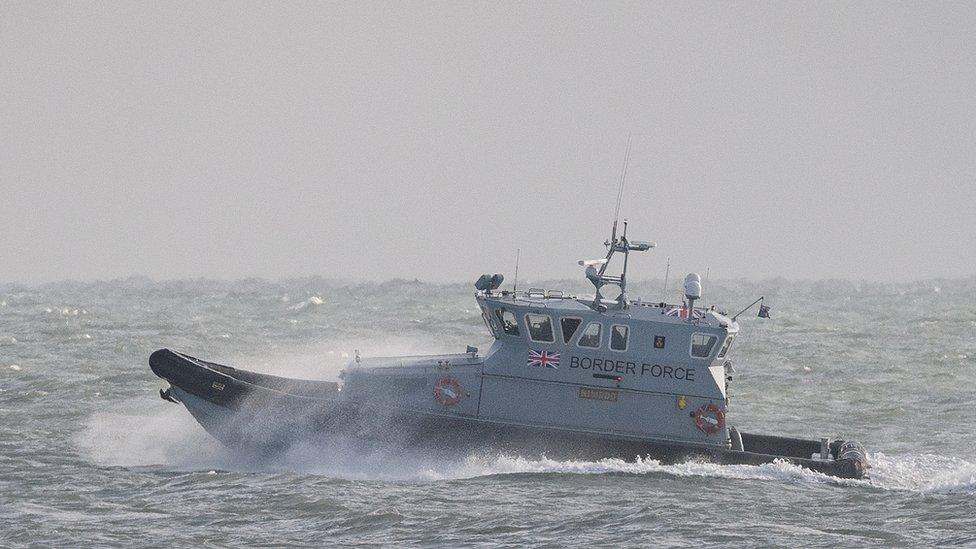
The Border Force was alerted at about 06:20 BST and a cutter was deployed
The number of migrants picked up trying to cross the Channel in May is now higher than the figure for December, when a "major incident" was declared.
Eight men were intercepted in a small boat at about 06:20 BST, bringing the total for May so far to 140.
In December, during mild weather, 138 migrants attempted the journey and Home Secretary Sajid Javid set out a plan for dealing with the problem.
At least 642 migrants have now crossed the Channel since 3 November.
The Home Office said: "Those in need of protection should claim asylum in the first safe country they reach."
It added that since January "more than 30 people who arrived illegally in the UK in small boats have been returned to Europe".

Analysis
Simon Jones, BBC News, South East
In December 138 migrants were picked up by officials. So far this month, 140 have been intercepted.
The crossings are very dependent on the weather. The end of last year was unseasonably mild leading to a spike in attempts to get to the UK.
The start of this year saw numbers fall again, as the weather worsened.
However, with summer approaching the sea is calm and the temperature is rising, so the Home Office is braced for more boats in the coming weeks.

On Friday, 18 migrants were picked up in a dinghy and brought to Dover.
Of the eight men found in waters off the Kent coast earlier, seven presented themselves as Iranian and one was an Afghan national.
The men were transferred to a Border Force vessel and taken to Dover at about 06:20 BST, the Home Office said.
They were medically assessed before being transferred to immigration officials.
A note on terminology: The BBC uses the term migrant to refer to all people on the move who have yet to complete the legal process of claiming asylum. This group includes people fleeing war-torn countries, who are likely to be granted refugee status, as well as people who are seeking jobs and better lives, who governments are likely to rule are economic migrants.
- Published24 May 2019
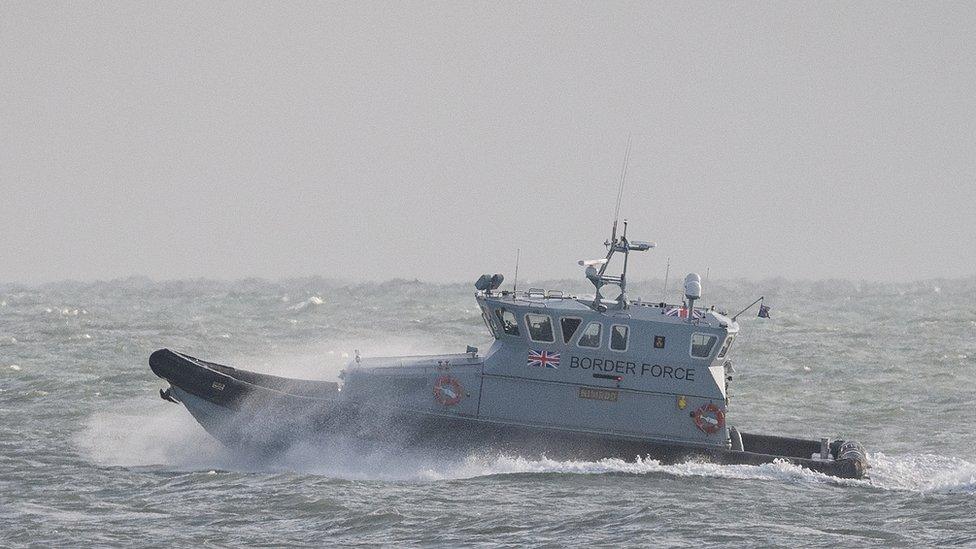
- Published12 May 2019
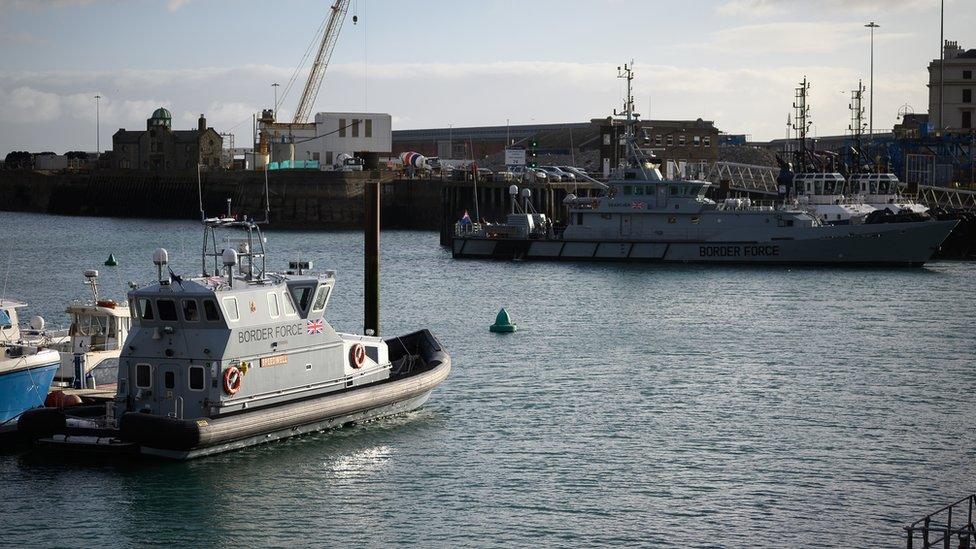
- Published11 May 2019
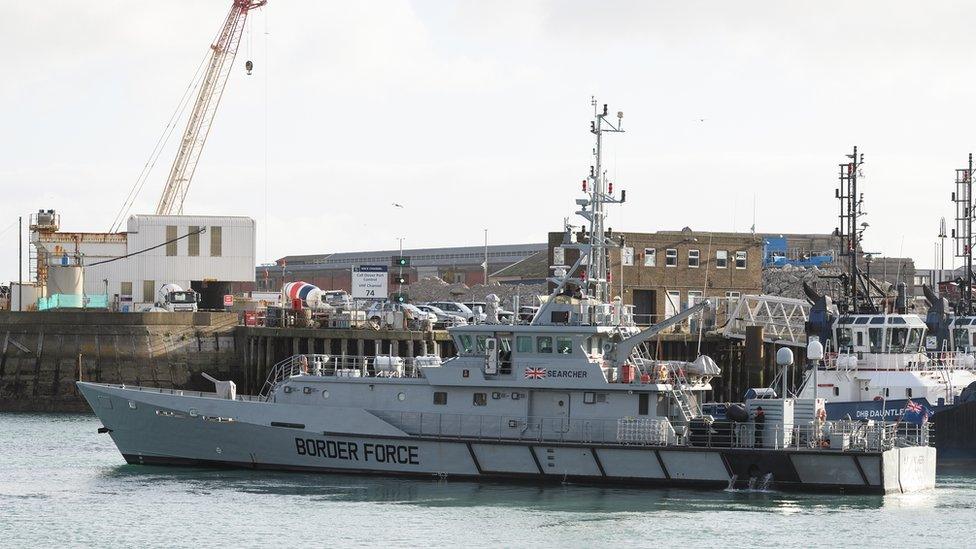
- Published1 May 2019
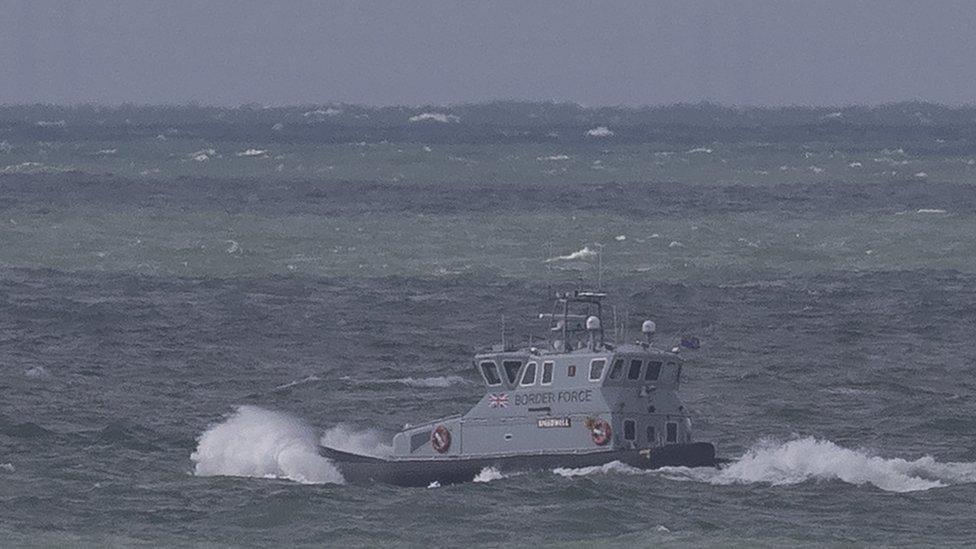
- Published28 December 2018
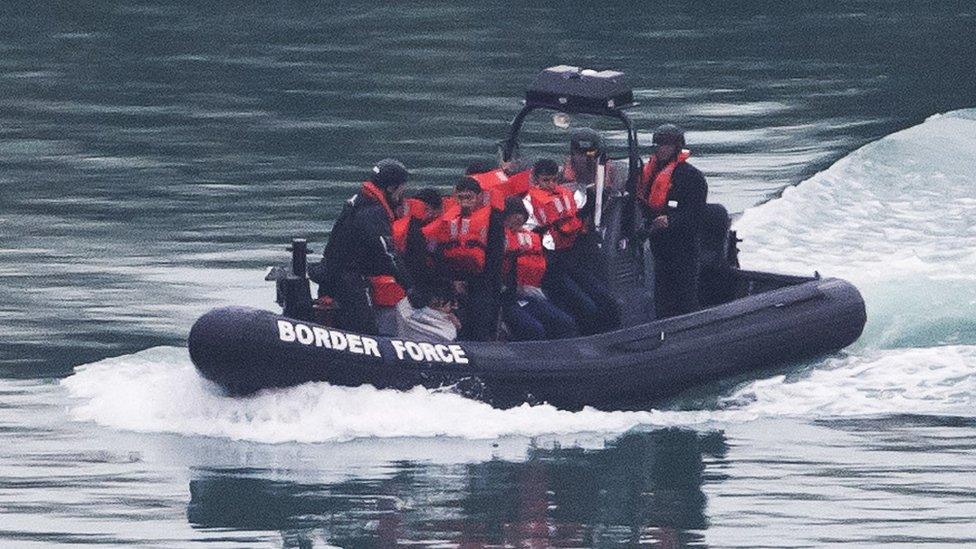
- Published26 November 2018
